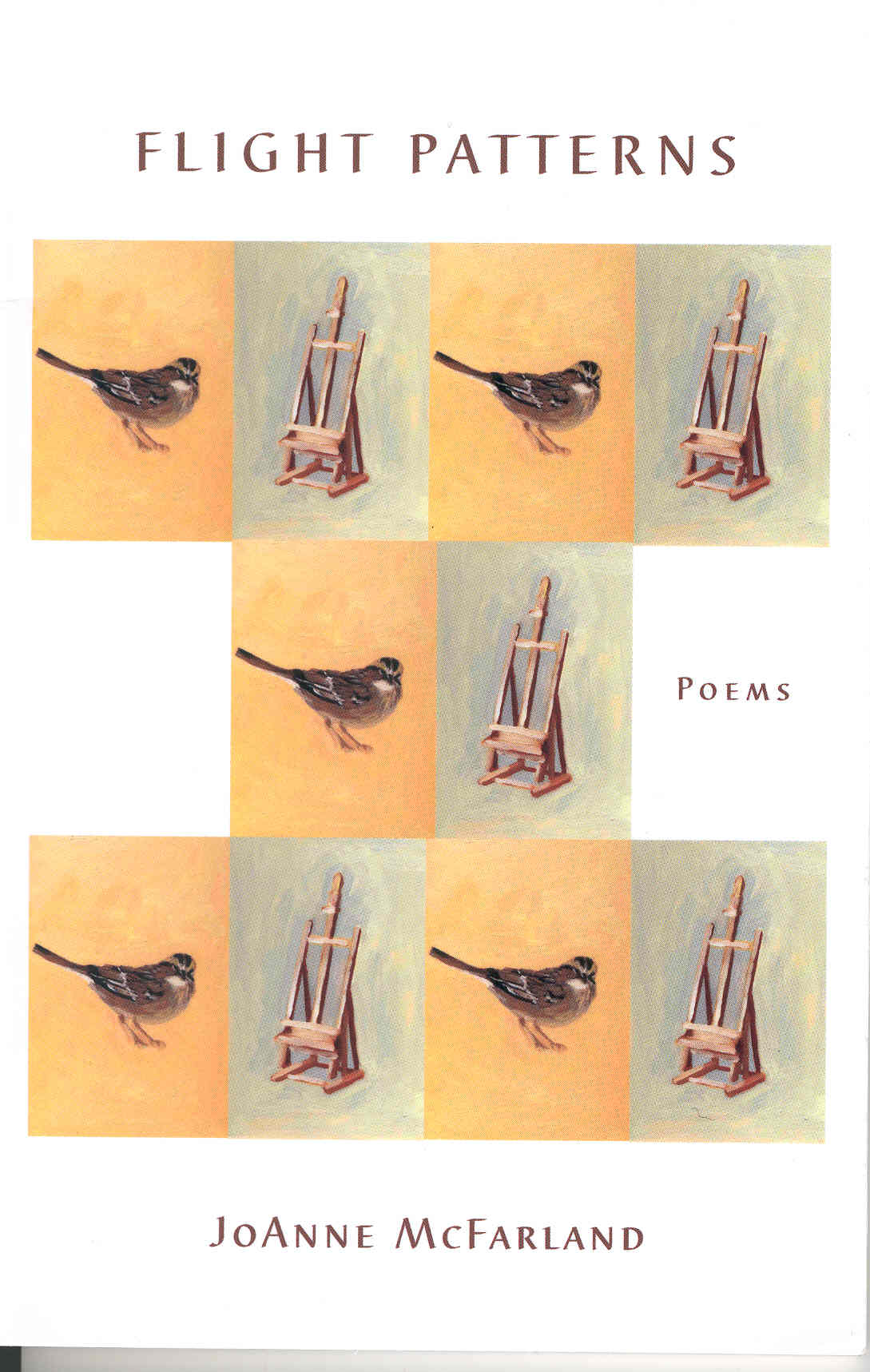
Flight
Patterns
JoAnne McFarland
Review by Alyce Wilson
In her collection of poetry, Flight Patterns, JoAnne McFarland
makes a mistake common to poets at any level of the game: to assume that
simply because something happened to her that will make it interesting
to the rest of the world.
McFarland, as her poetry indicates, is an artist with a studio in Brooklyn. She opens with a poem about her studio that concludes with the melodramatic lines "I weigh creation / against fate / then I begin". The self-conscious flourishes muddy the pure lines of what should have been a luminous print.
For example, in the poem "Still Life," where she concludes:
I've been told a thousand times to study the light
how it defines form
traveling effortlessly from its source
changed
only by what it strikes
What is the reader supposed to take from this, what meaning? It ends up sounding like the poet's effort to sound deep. This is the sort of poem read often in coffee shops that make the audience want to call out, "Enough of the dance. What really happened?"
Some of her best poems, like zen painting, are like sketches formed with the sweep of a sure hand. For example, these lines at the end of "A Flock of Gulls":
Red letters on a cement embankment scream
NO SMOKING
A woman pale as ash
leans against the sign
smoking her cigarette
But while she is capable of capturing such moments with strangers on the
street, she produces overworked landscapes when it comes to her personal
life. She alludes to problems within her marriage, but never provides
any telling details that could explain the nature of the problems.
In "I Break a Dish," she begins with a cliche:
Silence runs like a river between us
I wash the dishes
dry and stack the platesOne falls and breaks
but you don't noticeWhere you sit
light through the blinds
cuts you to pieces
so that you are
strips of a man
instead of the whole man
I married
This enigmatic moment is as close as she'll venture to this personal problem.
She is a little more explicit when talking about her father in "Resurrecting John." She ends that poem:
I remember how he'd call on the phone and cry I just
can't be with you right now
and something died within me and I became who I am —
a daughter eternally hungry for his love
These are clearly the words of someone who feels sorry for herself, and these poems are the sort of deeply personal yet obscure writing which tends to result. She needs to release herself from the desire to prove something to someone, as if she's still attempting to impress an absent father.
Instead,
she needs to trust that artist instinct, to treat her own life as she
does her models: to see past the ordinary and capture the essence of the
true self and true emotion.
Gold
Leaf Books, 2004: Order through JoAnne McFarland, 543 Union Street Studio
2B, Brooklyn, NY 11215